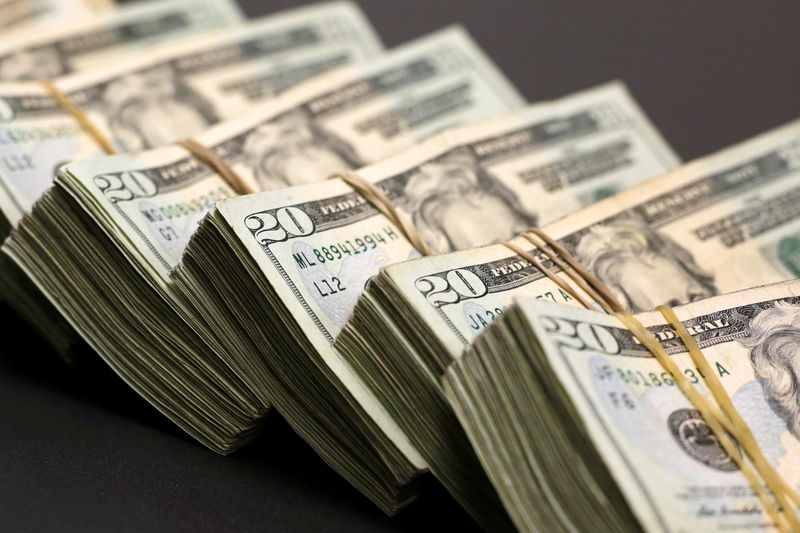Oil prices hold sharp losses with focus on secondary India tariffs
* Dollar slips as vaccine rally peters out
* Yen recovers some losses
* Graphic: World FX rates in 2020 https://tmsnrt.rs/2RBWI5E
LONDON, Nov 13 (Reuters) - The dollar slipped on Friday and
risk appetite in currency markets eased, as worries about the
economic fallout from surging COVID-19 cases in Europe and the
United States tempered initial enthusiasm about a possible
vaccine.
Global markets surged on Monday after Pfizer Inc PFE.N
said its experimental vaccine is more than 90% effective - news
which saw the dollar rise as traders quit their long-yen
positions. But traders became more risk-averse on Thursday and Friday,
after the heads of the Federal Reserve and the European Central
Bank stressed that the economic outlook remains uncertain.
"The rally on the markets following the US elections and the
news of an effective vaccine has petered out," wrote Commerzbank
FX strategist Thu Lan Nguyen in a note to clients.
"However, the chances are high that the market will not go
back into panic mode too quickly," she said, suggesting that an
economic recovery in the U.S. could continue despite the rising
infection rates.
The dollar slipped in early London trading, down around 0.1%
on the day at 0817 GMT at 92.884 versus a basket of currencies
=USD .
The safe-haven yen, which dropped around 2% versus the
dollar on Monday, continued to claw back some of these losses,
up around 0.1% on the day at 105.07 JPY=EBS .
Despite the pullback, the yen was still on track for its
worst week since March.
The Australian dollar - a liquid proxy for risk - was
broadly flat on the day and slightly down on the week as a whole
as caution about the economic fallout from the virus won out
over optimism about a vaccine AUD=D3 . The New Zealand dollar was down 0.2% versus the dollar at
0.6823 NZD=D3 , but up on the week after jumping to its highest
since March 2019 after the Reserve Bank of New Zealand's meeting
on Wednesday. The euro was slightly up on the day at $1.18105 at 0824 GMT,
ahead of euro zone Q3 GDP data due at 1000 GMT.
"This figure is history now," Marshall Gittler, head of
investment research at BDSwiss Group, wrote in a note to
clients.
"Everyone's worried about what Q4 will look like with the
lockdowns all over Europe," he said.
European shares have dropped from their eight-month highs as
European countries' lockdown measures to limit the spread of the
virus challenge the narrative of a global economic recovery.
Germany's health minister said on Friday that it is too
early to say how long the latest lockdown will last, while the
French prime minister said France's measures would not be eased
for at least two weeks. Versus the safe-haven Swiss franc, the euro extended its
gains from earlier in the week, up more than 1% on the week as a
whole, at 1.08105 at 0841 GMT EURCHF=EBS .
